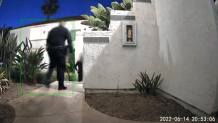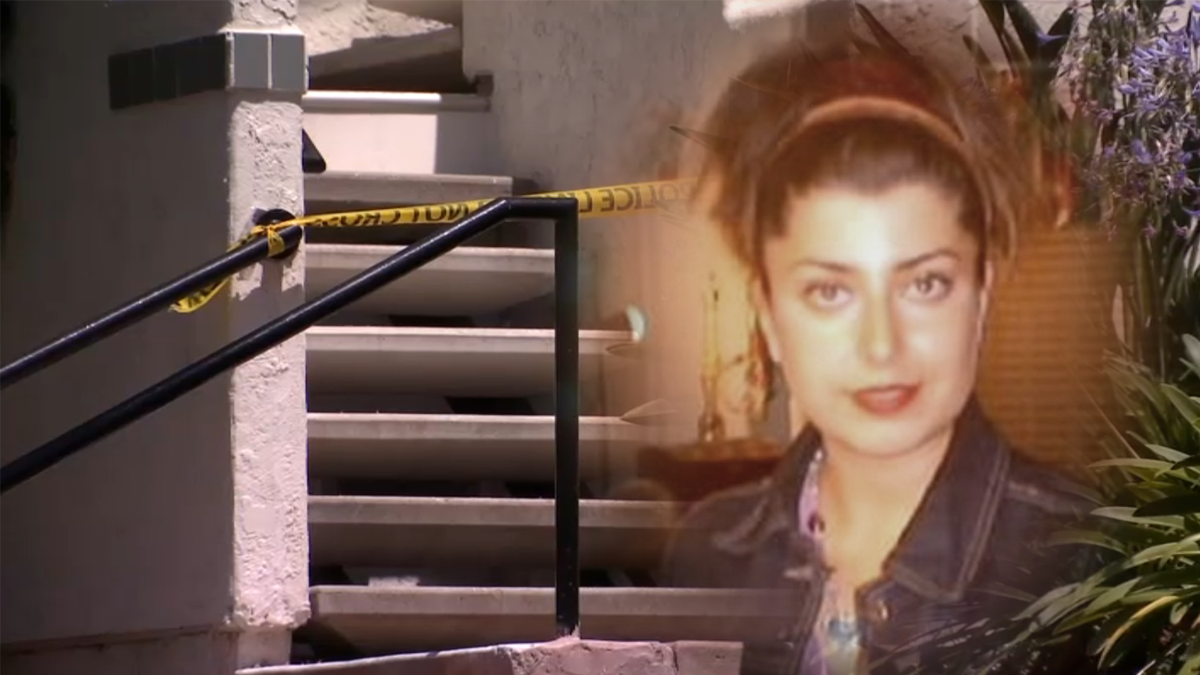Almost three days inside a jury deliberation room weren't enough for 12 men and women to come to a consensus about the biggest charge Parrish Chambers Jr. faces in the killing of Connie Dadkhah.
While jurors agreed Chambers was not guilty of 1st-degree murder, they could not come to an agreement about the other options for count one, 2nd-degree murder and involuntary manslaughter.
Friday morning, Judge Peter Deddeh ordered the jurors to return to deliberations, urging them to come to an agreement but asking them not to compromise their beliefs. Less than an hour later, the jury sent a note indicating their deliberations were no longer productive.
“The jury feels that further deliberation is no longer productive," Judge Deddeh read. "We voted again and are still split down the middle between 2nd-degree murder and manslaughter. Discussions are becoming hostile and continuing further is not conducive to a fair interpretation and compassionate interpretation of the law.”
It ultimately came to a point where nobody was going to change their minds, and that’s when we decided to call it.
Mara Endozo, Jury Foreperson
The jurors did come to partial verdicts in the case, though, agreeing he was guilty of two counts of simple battery and felony false imprisonment for other incidents during which he victimized Connie.
The judge said only second-degree murder and involuntary manslaughter will be on the table for retrial.
Following the verdict, Connie's cousin Sara Dadkhah expressed how disappointed the family was with the lack of closure.
“We can’t help but be disappointed that we didn’t reach a conclusion," Dadkhah said. “My cousin was brutally killed and we are going to stay on this to get justice for Connie.”
The killing of Connie Dadkhah
On June 14, 2022, Chambers scaled the side of a Rancho Peñasquitos condo. Once on the balcony, he smashed the sliding glass door to get inside and attacked Dadkhah. Those details were never in contention between the prosecution and the defense.
It’s what happened after the attack that is the main debate between attorneys. The prosecution said the attack killed Dadkhah and cited a medical examiner’s report that stated she was beaten to death causing skull fractures and brain bleeds. The exact nature of their relationship isn’t clear, but Dadkhah's friends said she met Chambers through her volunteer work with mental health outreach. They say he became smitten with her, tracked down her address, and constantly visited despite repeated requests that Chambers leave her alone.
The defense had a different narrative, saying Dadkhah survived the attack. Public defender Abe Genser said the pair reconciled after the attack, smoked methamphetamine, and had sex. Genser said Chambers and Dadkhah had a two-year abusive relationship that centered on drugs. He said it was those drugs that caused the brain bleed that ended her life.
The jury had multiple options during deliberations
Prosecutors charged Chambers with:
- One count of murder
- Two counts of simple battery
- One count of false imprisonment
The jury had several options. For the murder charge, jurors could have chosen between 1st-degree murder, 2nd-degree murder and involuntary manslaughter. That lesser charge option is due in part to the defense's assertion that Chambers was heavily intoxicated during the break-in. If the jury believed that to be the case, California law dictates that defendants are not consciously capable of making decisions, like the decision to kill.
For the false imprisonment charge, they could have found him guilty of the felony or the misdemeanor form of that charge. They found him guilty on the felony version of that count.
After the trial adjourned, an impromptu debriefing was held with jurors in the halfway. Representatives with the district attorney's office and the office of the public defender questioned jurors about why they couldn't reach an agreement and which parts of the case they had trouble with.
Multiple jurors said they grappled with the lack of evidence about how intoxicated Chambers might have been. Jury foreperson Mara Endozo agreed to speak with NBC 7 Investigates in an on-camera interview after that hallway debriefing.
"What the sticking point was, was whether the defendant was conscious or not," Endozo said. "Based on his level of intoxication, if he was conscious, he knew that these actions were resulting in death. And that was the hardest part that we could not agree on."
They also couldn't agree on the inconsistencies between Chamber's statements to detectives versus what he said on the witness stand.
The deliberations became contentious at times. One juror was seen crying in the hallway. The public defender told the court two other jurors yelled at one another in an elevator. And several were seen crying during the hallway debriefing.
“It ultimately came to a point where nobody was going to change their minds, and that’s when we decided to call it,” Endozo said.
The case that grabbed national headlines over the emergency response of the San Diego Police Department. It took officers about 45 minutes to arrive after neighbors called 911 to report the break-in. Once they arrived, they left about 15 minutes later when they weren’t able to make contact with Dadkhah. They told NBC 7 Investigates they didn’t force entry because they had reason to believe the defendant lived there, even though there was a court order in effect that mandated Chambers stay away from her.
Endozo also told one thing the jury wasn't divided on; shock over how police responded.
“It was very clear that everybody thinks the San Diego Police Department failed," Endozo said." They failed in that sense. And the cost was potentially her life.”
Hanging over the case is a declined plea deal. Chambers could have served a different sentence had the district attorney's office accepted a plea deal from Genser. In a motion filed before the trial, Genser said his client was prepared to accept 17 years in prison for voluntary manslaughter, an acceptance of responsibility for her death and two strikes on his record. The filing said that offer was rejected by the district attorney’s office.
In the wake of today's news, Sara Dadkhah said the family would be open to hearing about a new plea deal offer, so they could find some closure.
“We would be open to learning all the options at this point,” Dadkhah said.
Click here to read up what happened during the other days of the murder trial.
Background on the murder case

On the morning of June 15, 2022, prosecutors say Chambers emerged from Dadkhah's condo, spattered with her blood. They say he flagged down a neighbor to call 911 to report that she was dead inside. He was taken into custody soon after and charged with her murder. He pleaded not guilty.
Police dispatch records show that around 7 p.m. the night before, Dadkhah's neighbors began calling 911. They begged police to get there quickly, reporting that a belligerent man was trying to break into a woman’s condo. Initially, the call wasn’t prioritized. About an hour later, callers had new information to tell dispatchers: The man had scaled a wall to her second-floor balcony and smashed his way inside through a sliding glass door. While police upgraded the call to a higher priority, it took another 45 minutes for officers to arrive at the complex.

Those same dispatch records, along with court filings from prosecutors, reveal officers tried to make contact with Connie by calling her phone, knocking on her door, and using a loudspeaker. But officers left the scene 15 minutes later after failing to make contact with anyone inside. There’s no record of Dadkhah calling the police that night.
In defending their decision not to force entry the night before, police told NBC 7 Investigates they had reason to believe that Chambers lived there. That was based on a dispatch record accessed by responding officers. Police also told us the decision to force entry into anyone’s home shouldn’t be taken lightly and is among the highest level of legal standards they operate under.
But Chambers didn’t live there, though our investigation revealed a history between the two. Court filings show that included an incident in 2020 where Chambers was convicted of vandalism. The judge ordered Chambers to stay away from Dadkhah. That order was still in effect when she died.



